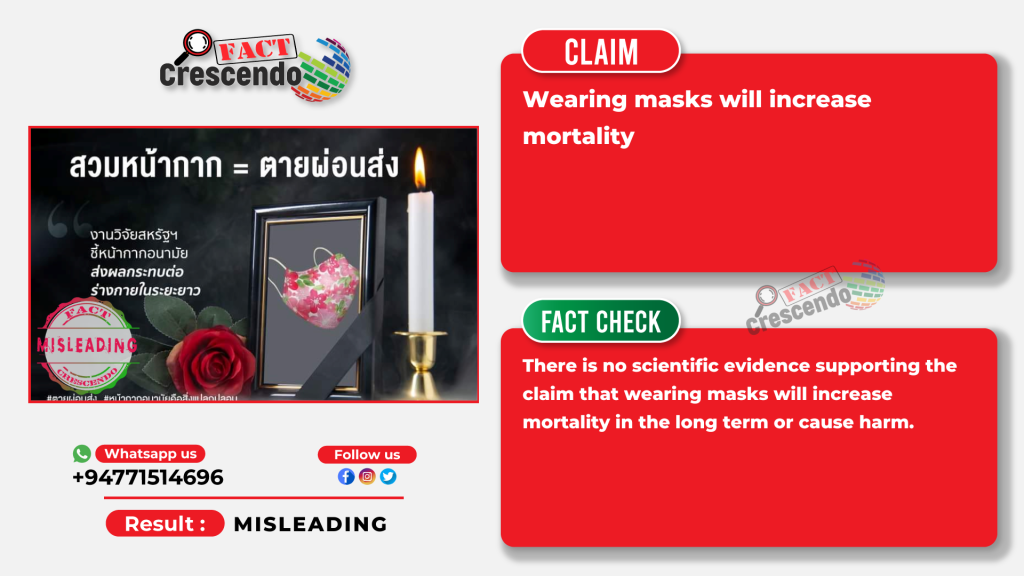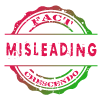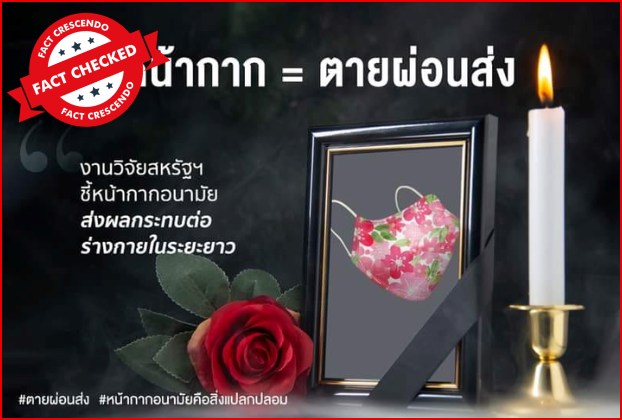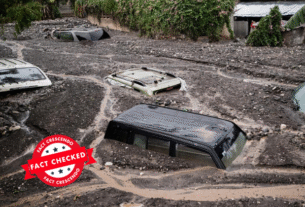
Last year, Thailand canceled the requirement for wearing masks in public. However, many Thai people continue to wear them in public, especially in enclosed areas such as shopping malls, trains, planes, and public transportation. In addition to preventing COVID-19 infections, many Thais still wear masks due to air pollution issues, specifically PM 2.5. Recently, the Air Quality Index (AQI) in Bangkok and other provinces has reached unsafe levels. There are times when the AQI reaches dangerous levels, causing people, especially residents of Bangkok, to be more vigilant about wearing masks again.
However, we recently saw a message circulating on social media that advised against wearing face masks, which may cause confusion for the reader.
Social Media Claim
A message on social media warns about the dangers of wearing a mask. Source | Archive
Post Translation:
“Wearing a mask = Decrease your mortality
Have you ever paid attention to your health? Do you experience fatigue, frequent headaches, or insomnia since getting Covid? While many may assume it’s due to Long Covid, no one has considered the actual cause.
PN Medical, an organization that has been researching and developing respiratory health in the United States for more than 40 years, has conducted research with samples from various professions on the effects of wearing a mask. The study has found that wearing a mask changes the breathing rhythm and affects body temperature regulation. This can be noticed by increased body temperature, starting from the face area. In addition, wearing a mask can affect both physical and mental health, even after it is removed.
Wearing medical masks, cloth masks, or even N95 masks can cause abnormal levels of oxygen and acidity in the blood, resulting in various effects such as headaches, dizziness, shortness of breath, anxiety, insomnia, and tingling in the hands and feet.
Quality breathing requires full-lung breathing so that the diaphragm can fully expand and stimulate the nerves in that area, which helps the body relax. This is not possible if you have to wear a mask all day, every day.
However, suppose you still need to use a mask. In that case, PN Medical recommends taking 5 full breaths before putting it on, immediately after putting it on, and after taking it off. Follow the following order:
- Inhale for 4 seconds through the nose.
- Exhale for 6 seconds through the mouth.
- Pause for 2 seconds before repeating.
Remember to breathe more slowly and deeply than usual while wearing the mask. If you have to use the mask for an extended period, periodically find a safe space to remove the mask and practice the breathing exercises mentioned above.
The human body was not built to support the long-term wearing of a surgical mask. Therefore, we should only use it when feeling unwell to prevent spreading to others. It should not be worn all the time because not only does it fail to protect us from COVID, but it also harms our health, leading to what some call #SlowKilling.
Read more at https://www.pnmedical.com/…/effects-of-wearing-face-mask/
#MaskIsAForeignThing #WearAMaskOnlyAsNeeded. #CovidIsAnEndemicDisease”
In addition to the above post, we also found the same message circulating on Facebook and LINE. The message has been widely shared since last November. Source | Archive
Fact-Checking
We have reviewed the research attached to the claim, which studies the potential adverse effects of wearing a face mask. This article talks about how wearing face masks affects the body by changing oxygen and carbon dioxide levels. It also addresses common worries about whether face masks are safe and effective by citing studies and expert opinions. They recommend the use of face masks as a way to prevent respiratory illnesses. Finally, the article concludes that although wearing a mask may cause discomfort, it is worth it because the benefits outweigh the possible risks.
This article from PN Medical Institute aims to guide the correct way to breathe while wearing a face mask to reduce these adverse effects when wearing a mask for a long time. Notably, this research does not suggest that people should stop wearing masks.

This poster from PN Medical explains how to breathe properly while wearing a mask.
According to Health Feedback, the claim that face masks increase mortality is based on flawed correlation studies. However, various scientific studies and evidence show that wearing face masks effectively limits community transmission of respiratory illnesses such as COVID-19. Furthermore, no credible evidence supports the claim that wearing masks increases mortality. In fact, face masks are an effective tool in preventing the spread of respiratory illnesses. (Read more here)
In addition, Dr. Kimberly M. Dickinson and Dr. Theresa W. Guilbert have confirmed on Healthy Children that breathable materials, like disposable masks, do not trap the carbon dioxide we normally exhale nor weaken the immune system. Surgeons often wear tight-fitting masks all day without experiencing any harm.
As many experts and health organizations have suggested, wearing a mask effectively prevents the virus. Therefore, the statement “Masks fail to protect us from COVID” is false and misleading. (Read more studies about wearing a mask here)
Conclusion
The claim above is misleading. There is no scientific evidence that wearing a face mask increases mortality or shortens lifespan. In addition, the research attached to the claim was intended to teach breathing methods that reduce unpleasant symptoms while wearing a mask for a long time and did not suggest that wearing a mask shortens life in any way.

Title:Does Wearing a Mask Iecrease Mortality? Find Out the Truth
Fact Check By: Fact Crescendo TeamResult: Misleading





